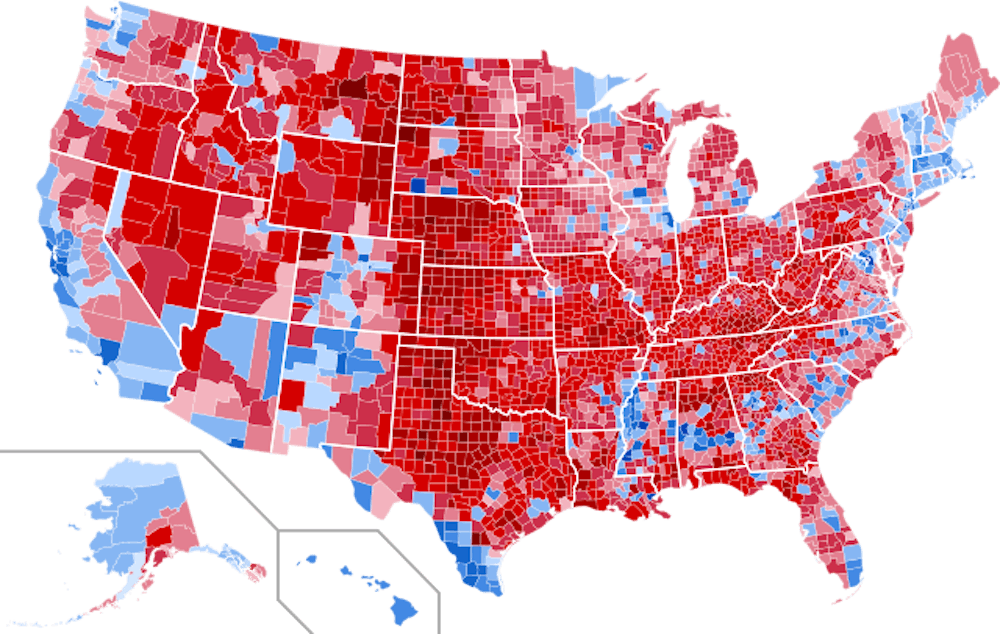Perhaps nothing has periled the Democratic Party more than the electoral college: despite winning the popular vote only once this decade (out of five presidential elections), Republicans have held the presidency half of the time. Democrats always argue that true democracy would elect a leader based on a raw popular vote. The truth is, both parties are primarily interested in whichever system keeps them in power. As a voter in New Mexico, however, I primarily am interested in which system gives New Mexico its proper voice.
The Electoral College is a unique institution in American democracy — reflecting a compromise between various political factions and an evolving understanding of democracy. The Constitutional Convention of 1787 to address the problems encountered in the Articles of Confederation. The framers faced a significant dilemma: how to elect the President of the United States. Advocates for elections by popular vote argued that it embodied the true democratic spirit, allowing citizens to choose their leader.
However, concerns over direct democracy's potential for mob rule led others to favor Congressional selection, believing that elected representatives would be better equipped to choose a competent leader. The compromise emerged as a hybrid system we know as the Electoral College, where each state appoints electors equal to its number of Senators and Representatives in Congress.
California should have more political influence than New Mexico: they have more than 15 times more people. But, the views of Californians or Floridians shouldn't overpower the concerns of New Mexicans. In Texas and Florida — two of the country’s largest electorates — 62% and 73%, respectively, support school choice. School choice is something that Donald Trump’s Agenda 47 wants to make universal.
Perhaps states where more students are enrolled in private schools would benefit from this, but this policy would devastate New Mexico, pulling resources from our most vulnerable constituents. Despite ranking 47th in public school education, we rank 36th in per-pupil spending indicating we don’t have the resources to uplift our system. These vouchers are typically used by private school parents to subsidize tuition and will only pull money away from our struggling public schools. This is not to devalue the opinions of Texans and Floridians that may be in the best interest of their state. Rather, I want to highlight that policies need to be optimized so they are not preferentially helping specific populations at the expense of others.
The trite saying goes “land doesn’t vote, people do.” However, land and its history affects the conditions and needs of the people that live on it. Federal policy undoubtedly has a much different impact on New Mexico than it does other states. For example, the overturning of Roe v. Wade led to a 20% increase in provision of abortions in California, while it led to a 279% increase in the number of abortions in New Mexico.
While New Mexico and California have voted together in recent elections, abortion is just one of numerous issues that have disparate effects on New Mexico. The number of abortions provided could change depending on evolving abortion laws in states around the country, but New Mexico’s proximity to Texas, a large state where “abortions are banned with certain exceptions,“ means our healthcare system following such measures will be drastically more impacted than many other states in the country.
Roe V. Wade is just one example. If the federal government allows conservative electorates to outlaw any progressive healthcare measures from gender affirming surgery to certain vaccines, New Mexico’s system, as the sole blue state bordering the largest red state in the country, will feel the absorb the excess burden of healthcare tourism.
Our diverse but socioeconomically disadvantaged population will undoubtedly feel different about policies than whiter and richer electorates. Their voices should not drown out our concerns. In a national popular vote, Kamala Harris or Trump would only rally in the biggest population centers. They would have no political need to address our concerns because our consent to being governed is being overruled by apparent “democratic” ideals.
Another common criticism of the Electoral College is that it makes people feel like their vote doesn’t matter. A Republican voter in California is likely to be frustrated that despite his efforts, his state will go 30 points blue. I recognize this criticism but do not acknowledge that this merits a switch to a popular vote democracy. Democracy is a beautiful concept that needs to be honored to some extent without full-fledged majority rule over the minority. Striking the balance is important.
My state of New Mexico often votes blue and I understand that the Electoral College has recently disadvantaged Democrats. But without it we — and countless other small states, blue or red — would be left without a say.
Neil Mahto is a sophomore majoring in Chemistry and English. He is the Opinions Editor for The News-Letter.





